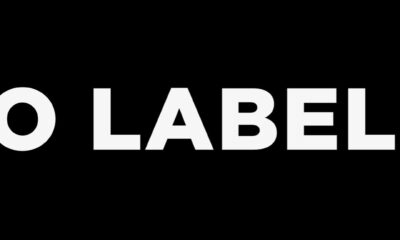Legislative
Taxes, spending, and moral authority

More than a week ago (14 December) the world saw a public debate about which it is still buzzing. Senator Elizabeth Warren (D-Mass.) returned to a common theme for leftist politicians. She never saw a tax she did not wish to impose. Furthermore she used taxes to attack someone opposed to her program and those of her allies. But this time the target answered her back in a real Atlas Shrugged moment. That answer makes this as good a time as any to discuss taxes, why we pay them, and how support for out-of-control spending diminishes the moral authority of anyone who dares question a fellow citizen’s loyalty on the grounds of how much, or how little, in taxes that fellow citizen pays.
Elon Musk’s taxes – how the debate started
As the world knows, Time Warner Publications named Elon Musk as the Time Magazine Person of the Year. He won this designation with his single-handed reinvention of the aerospace and automotive industries. And how he reinvented those industries, stands as a prize example of an innovating mind-set. Tell him that no one can recover any part of a rocket ship, and he asks why. So he invents rocket boosters that can, after they fulfill their part of a mission, return undamaged to Earth.
Tell him that electric vehicles have never been anything but glorified golf carts, and… well, first he might dispute you. And he’d have grounds, considering General Motors’ EV-1 program (which they ended by crushing their entire production run). Then he asks why anyone would think that, and hears the usual objections. These objections include everything from limited range to difficulty with heating and cooling the cabin. So he assembles a team to design electric cars that answer all those objections, and to design manufacturing processes to build it quickly and less expensively. And he puts, not his name on it, but the name of that forgotten inventor, Nikola Tesla.
All of which to say that Elon Musk is not the typical dilettante who has won the Person of the Year Award before. He creates things of beauty, value, and above all, function. And never stops thinking of ways to improve them.
Senator Warren’s question about taxes
So what did Senator Warren say? Did she congratulate him on furthering a transition she and others say human beings must make to save their world?
Elizabeth will set bold standards for fuels and emissions and boost consumer demand for zero-emission vehicles by creating a “Clean Cars for Clunkers” program to replace fuel-inefficient cars. By 2030, we’ll reach 100% zero emissions for all new light-duty passenger vehicles, medium-duty trucks, and all buses.
Elon Musk “boosted consumer demand for zero-emission vehicles,” not by offering to buy back and crush existing vehicles, but by building vehicles people would honestly prefer to conventional vehicles. But maybe that’s not good enough for one who, like Senator Warren, prefers dictatorial “solutions.”
In any event, she offered no congratulations. Instead she offered this snide message on Twitter:
If she wants to talk about a “rigged tax code,” CNAV suggests the “FairTax” program of Americans for Tax Reform. In any event, she is returning to a theme of taxing unrealized capital gains. That would be like forcing you to sell equity in your house as it rises in value. Sooner or later, you don’t own your house anymore! Which is probably what she wants: total government ownership of everything.
Elon Musk retorts
In reply, Elon Musk told Senator Warren to stop throwing off on everybody else.
He said this in reference to a Fox News article from 2019, taking her to task for making up a Native American heritage for herself. Then he compared her to an adult woman he remembered from his childhood. She would yell at random on the street for no reason anyone could discern.
And then he made the remark that started an even louder buzz:
Please don’t call the manager on me, Senator Karen.
Of all the replies Elon Musk got, this one, that addresses his taxes, is most on point. Mr. Tyler Levine-Hall said Elon Musk “gained” 100 billion in net work “during the pandemic.” And he whined about paying tax at a higher rate.
Immediately another user pointed out that Elon Musk’s companies employ 80,000 people and must cover their payroll taxes.
This refers no doubt to the matching contribution to the Old Age, Survivorship and Disability Insurance program (“Social Security”) every employer must make. The user concluded,
I’m very sure he is making a much greater donation to the government purse than you are.
Which is most likely correct.
How much did Musk pay in taxes?
Especially after Mr. Musk has sold much of his equity in Tesla and paid taxes on the realized capital gain. In fact he will pay $15 billion in taxes, in consequence to those stock sales, as another user pointed out.
(See here and here for more specific evidence on this point.)
But that does not satisfy those who think an Elon Musk shouldn’t exist, and industry should be a public trust.
What actually matters in the debate
Why did Senator Warren start this, and why do so many continue the refrain? Because everyone accepts uncritically the morality of “progressive taxation,” that taxes you at a higher rate the more you make. That’s a good way to depress an economy permanently—or reset it to a command economy. Or maybe to induce “all the innovators to move somewhere else.”
Besides, Elon Musk took the tax code as he found it.
But the debate misses two important points. First, those who constantly call for spending to benefit them, forfeit any moral authority on the taxes others pay. What happened to value for value? Karl Marx happened to it:
From each, according to his ability, to each, according to his need.
Second, the Constitution does not even authorize about ninety percent of government spending programs. Let Senator Warren find the clause in the Constitution that says that Congress should have the power to:
- Provide a guaranteed minimum ration for every citizen and lawful (or unlawful) resident,
- Build “free” hospitals, or for that matter, free schools,
- Buy back people’s guns, cars, or anything else they own, merely because Congress does not want ordinary citizens to have such things, or:
- Establish “public health” measures that violate any concept of freedom and security of the person.
And in the alternative
CNAV has already suggested an alternative to income taxes, progressive or any other kind: a consumption tax. Americans for Tax Reform gives the details.
In addition, CNAV suggests critically reexamining the rationale for every government program. If nothing in the Constitution authorizes it, end it. And for that matter, amend the Constitution to strike certain provisions that threaten liberty. Start with Article I, Section 8, Clause 9:
The Congress shall have the power … to establish post offices and post roads.
Continue with Amendment XVI, which authorizes income taxes – and any taxes without apportionment among the States.
More broadly, let’s examine the premises of anyone who complains about the taxes others pay. Those who make such complaints, merely want the government to make others’ lives miserable. This becomes one way among many that government becomes “a dangerous servant and a fear[some] master,” to quote George Washington.
Terry A. Hurlbut has been a student of politics, philosophy, and science for more than 35 years. He is a graduate of Yale College and has served as a physician-level laboratory administrator in a 250-bed community hospital. He also is a serious student of the Bible, is conversant in its two primary original languages, and has followed the creation-science movement closely since 1993.
-

 Executive1 day ago
Executive1 day agoJanuary 6 case comes down to selective prosecution
-

 News2 days ago
News2 days agoRolling the Dice on Republicans: Has the Right Become Delusional?
-

 Civilization18 hours ago
Civilization18 hours agoPresident Biden Must Not Encourage Illegal Mass Migration From Haiti
-

 Civilization2 days ago
Civilization2 days agoBiology, the Supreme Court, and truth
-

 Executive20 hours ago
Executive20 hours agoWhy Fatal Police Shootings Aren’t Declining: Some Uncomfortable Facts
-

 Guest Columns19 hours ago
Guest Columns19 hours agoWhat Was Won in No Labels’ Crusade
-

 Entertainment Today21 hours ago
Entertainment Today21 hours agoWaste of the Day: Throwback Thursday: Millions Went To Video Game ‘Research’
-

 Constitution19 hours ago
Constitution19 hours agoEquality Under the Law and Conflicts of Interest in New York














